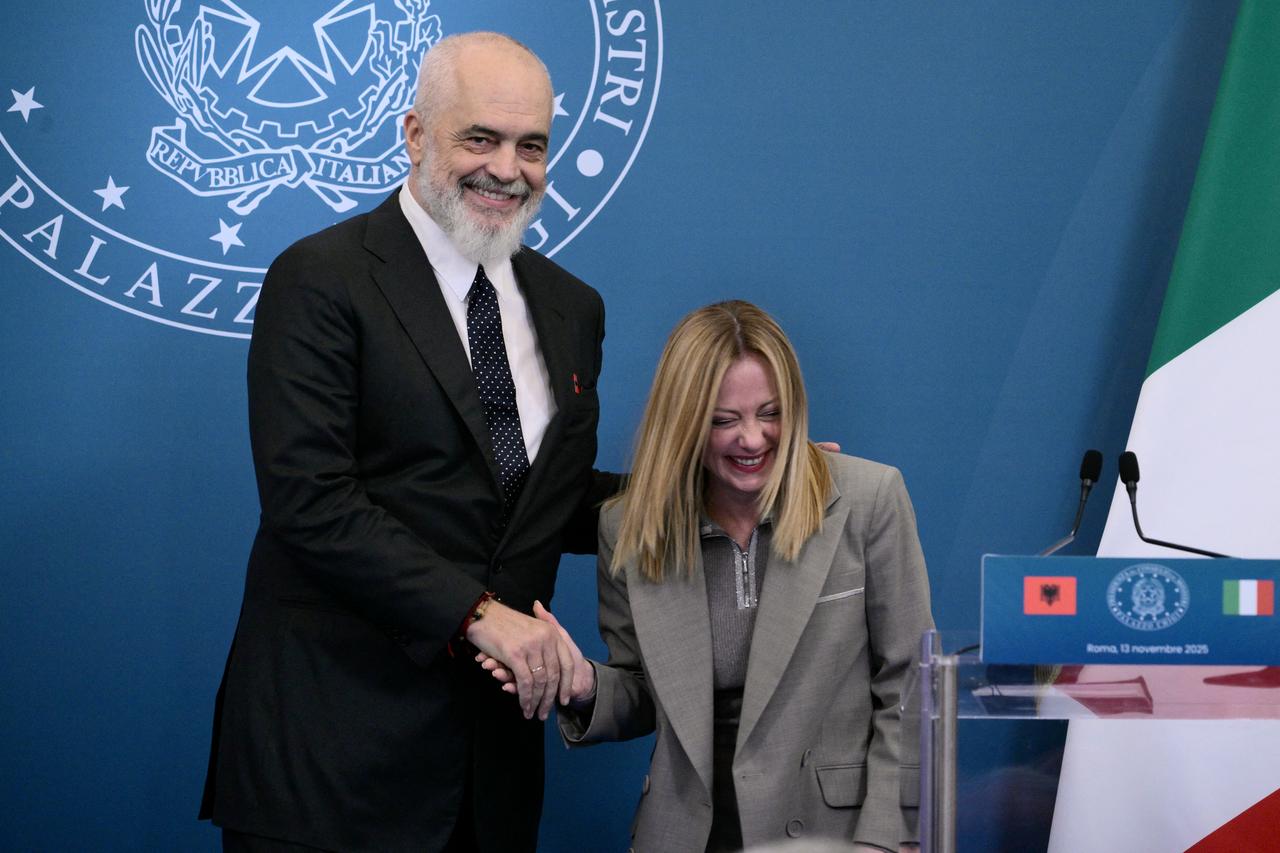
Talian Prime Minister Giorgia Meloni defended her government's troubled migration agreement with Albania on Thursday, pledging that detention centers designed to process asylum seekers outside Italian territory will become fully operational once new European Union regulations take effect.
Speaking after a bilateral summit in Rome, Meloni acknowledged the legal obstacles that have prevented the facilities from functioning as intended but expressed confidence the arrangement will succeed. "Certainly, the protocol will work when the new (EU) migration and asylum pact comes into effect," she said, pointing to EU-wide reforms scheduled to begin in mid-2026.
The Italian leader and Albanian Prime Minister Edi Rami signed the original agreement two years ago, establishing what would become a closely watched experiment in outsourcing migration management. Under the arrangement, Italy would fund and operate processing centers in Albania to handle asylum seekers intercepted in international waters, removing them from Italian soil during the application review period.
However, the project has faced persistent legal challenges from Italian courts, with numerous judges questioning whether the scheme violates constitutional protections. As a result, the facilities have remained largely vacant since opening a year ago, despite government efforts to repurpose them for migrants awaiting deportation.
The setbacks represent a significant blow to what Meloni has positioned as a centerpiece of her government's approach to managing irregular migration. The far-right prime minister has made reducing migrant arrivals a defining priority since taking office, and the Albania deal was meant to demonstrate an alternative model that other European nations might adopt.
Meloni indicated the situation would change once the EU's comprehensive migration and asylum pact enters force. "When the migration and asylum pact comes into effect, the centres will operate exactly as they should have from the beginning," she said.
The EU pact, adopted last year, introduces stricter border procedures and allows for expedited deportations. Following its passage, the European Commission has established frameworks enabling member states to establish migrant return facilities beyond EU borders and published a list of designated "safe" countries whose citizens will face higher barriers to asylum claims.
Beyond migration, the Rome summit yielded more than a dozen agreements strengthening cooperation between Italy and Albania across multiple sectors. The accords cover energy development, transportation infrastructure, security collaboration, defense coordination, and civil protection measures.
Italy, which serves as Albania's primary trading partner, committed to delivering two patrol boats to the Balkan nation's coastguard. Additional provisions focus on enhancing Albania's capacity to combat drug trafficking networks, according to an Italian government statement.
Meloni also publicly backed Albania's aspirations for European Union membership, lending support to the candidate country's integration efforts.